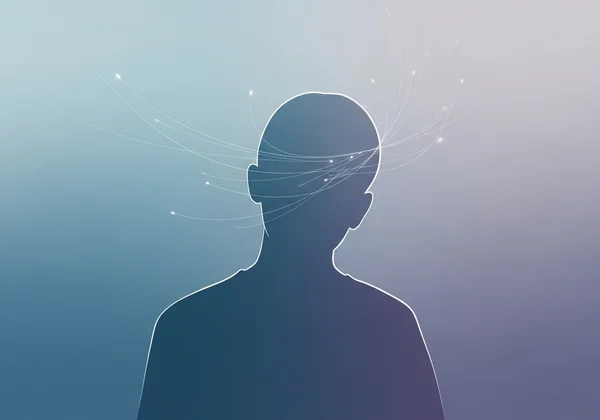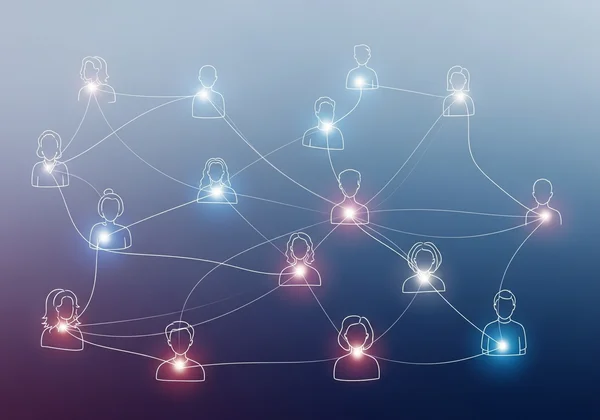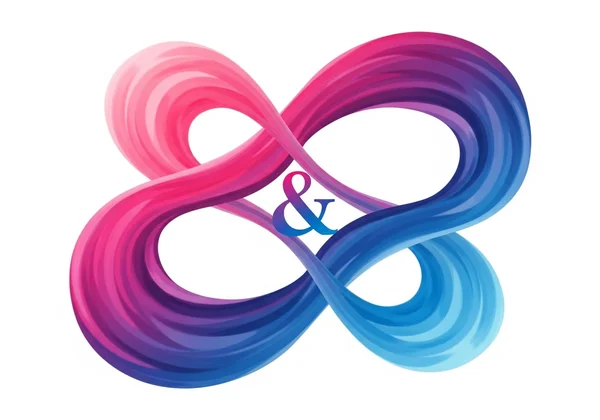LGBTQ+ Orientation Quiz: 5 Stories of Self-Discovery & the Gay Test Journey
October 27, 2025 | By Riley Foster
"I thought I was the only one." If that sentiment feels familiar, you have found the right place. Questioning your sexual orientation is a deeply personal journey, often filled with curiosity, confusion, and even isolation. A common question that echoes in the quiet moments is, Is it normal to question my sexuality? The answer is a resounding yes. It's a courageous step toward understanding your authentic self. This article shares five anonymous, heartfelt stories of LGBTQ self-discovery, offering connection, validation, and a gentle reminder that your feelings are a valid part of the diverse human experience. If these stories resonate, you might find our tools for reflection helpful to start your journey.

Exploring "Am I Gay?" Experiences & Early Confusions
The first whispers of questioning often begin with feelings that don't quite fit the narrative we've been taught. It can be a confusing time, marked by introspection and a search for answers. Many people begin by typing "Am I gay?" into a search bar, looking for shared experiences that mirror their own inner world. These early stages are not about finding a definitive label, but about giving yourself permission to explore feelings that have been simmering beneath the surface. For many, this exploration starts with re-examining the relationships and emotions they once took for granted.
The Unexpected Spark: When Friendships Feel Like More
For Alex, 19, his journey began with his best friend. He described their bond as unbreakable, but over time, he noticed his feelings deepening into something more than platonic. "I just wanted to be around him all the time," Alex shared. "The thought of him dating someone else filled me with a jealousy I couldn't explain. I dismissed it for years, telling myself I was just a really loyal friend." This intense emotional connection is a common narrative. The realization came during a late-night conversation when his friend talked about a girl he liked. Instead of feeling happy for him, Alex felt a profound sense of loss. That spark of jealousy illuminated his true feelings, starting him on a path of accepting his attraction to men.
Breaking the Mold: Realizing Identity Beyond Expectations
Jenna, 22, always followed the script. She dated boys in high school, went to prom, and talked about her future husband. Yet, she felt a persistent disconnect. "It was like I was playing a role," she explained. "I was doing everything I was supposed to, but my heart wasn't in it." Her moment of clarity came while watching a movie with a strong lesbian lead. Seeing a woman confidently love another woman shattered the societal expectations that had boxed her in. It wasn't about a specific attraction at that moment, but the realization that another way of being was possible—a way that felt more authentic to her inner feelings. This opened the door for her to explore her attraction to women, an identity she had subconsciously suppressed for years. If you're feeling a similar disconnect, a gentle self-reflection tool like an LGBTQ+ orientation quiz can be a safe first step.

Beyond the Binary: Realizing You Are Bisexual and More
Self-discovery is rarely a straight line, and for many, it leads to an understanding of attraction that exists beyond a simple gay or straight binary. Realizing you are bisexual or that your attractions are fluid is a valid and common part of the human experience. These journeys highlight the beautiful complexity of sexuality and challenge the rigid boxes society often creates. Embracing this complexity is an act of profound self-acceptance and a testament to the idea that love and attraction are not always simple.
Navigating Dual Attractions: The Journey of Bisexuality
Marco, 25, spent years oscillating between identities. "When I was with a woman, I thought, 'Okay, I'm straight.' When I felt attracted to a man, I thought, 'I must be gay.' I felt like a fraud in both worlds," he confessed. His journey was about unlearning the idea that he had to choose. He discovered the term bisexuality and found a community that understood his experience of dual attractions. For Marco, self-acceptance wasn't about picking a side but about embracing the "and." He learned that his ability to be attracted to more than one gender didn't invalidate his feelings; it enriched them. Understanding this was key to his self-realization.

Embracing Fluidity: When Attraction Patterns Evolve
For some, sexual orientation isn't a fixed point but something that evolves. Taylor, 28, identified as a lesbian for nearly a decade. She was a vocal part of her local queer community and felt secure in her identity. However, she later developed deep romantic feelings for a man who was her close friend. This unexpected shift was deeply unsettling. "I felt like I was betraying myself and my community," she admitted. Through conversations with trusted friends and a therapist, Taylor came to understand the concept of sexual fluidity. She realized her past identity wasn't a lie, nor was her current one. Her capacity for attraction had simply expanded. Her story is a powerful reminder that personal growth can sometimes lead our identities in unexpected directions. To better understand your own patterns, you can explore your feelings in a private and supportive space.
Your Unique Path to LGBTQ+ Self-Discovery
Every story we've shared is different, yet they are all connected by a common thread of courage and introspection. Your journey is yours alone, and there is no right or wrong way to navigate it. The most important part is to approach yourself with kindness, patience, and an open mind. Whether your realization comes in a sudden flash or dawns on you slowly over many years, the path to understanding your personal identity is a profound one. These final stories remind us that it's never too late to find yourself and that community is often the key to feeling whole.
Finding Your Voice and Community After Self-Realization
Chris, 45, lived most of his adult life as a straight man. He was married, had children, and built a life that, from the outside, looked perfect. But internally, he carried a secret he had suppressed since he was a teenager. "The fear of losing everything I had built was paralyzing," he said. After his divorce, he decided he could no longer ignore his truth. Timidly, he began seeking out local LGBTQ+ groups and online forums. "Finding other men my age who had similar stories was life-changing," he shared. "It wasn't just about dating; it was about finding a community where I didn't have to hide." His journey shows that self-acceptance can happen at any age and that finding your people is a vital part of the process.

You Are Not Alone: The Power of Shared Journeys
From Alex's friendship-turned-romance to Chris's later-in-life discovery, these narratives underscore a universal truth: you are not alone. The feelings of confusion, the search for answers, and the eventual relief of understanding are all part of a widely shared human experience. These questioning sexuality stories are not just anecdotes; they are testaments to the resilience of the human spirit. They show us that questioning is not a sign of being broken, but a sign that you are growing into a more authentic version of yourself. Your path may be winding, but it is valid. Take our free quiz to add another piece to your personal puzzle.
Ready to Explore Your Own Story?
These five stories are just a glimpse into the countless ways people come to understand their sexual orientation. Each journey is unique, valid, and worthy of respect. If you see parts of your own experience in these narratives, know that your feelings are normal. The most important step you can take is the one toward self-understanding, and that often starts with asking the right questions in a safe environment.
Your story is still being written. If you're looking for a private, supportive space to reflect on your feelings, our Gay Test tool is designed for just that. It's more than a quiz; it's a starting point for self-discovery, created with input from psychologists and LGBTQ+ community members.
Frequently Asked Questions About Sexual Orientation & Self-Discovery
Got questions about your sexuality? Many people do. Here are answers to some common ones that come up during self-discovery.
Am I gay if I'm attracted to someone of the same sex?
Attraction to someone of the same sex is a key part of what it means to be gay or lesbian. However, identity is personal. Some people may experience this attraction and identify as gay, while others might identify as bisexual, pansexual, or queer. There's no single right answer. It’s about what label, if any, feels most authentic to you and your overall pattern of attraction—emotionally, romantically, and physically.
Can my sexual orientation change over time?
Yes, for some people it can. This is often referred to as sexual fluidity. A person might identify as straight for many years and later realize they are attracted to the same gender, or vice versa. This doesn't invalidate your past experiences or identity. It simply means that you, like all humans, are capable of growth and change throughout your life. It's a normal and valid experience.
Is it normal to question my sexuality?
Absolutely. Questioning your sexuality is a very normal and healthy part of human development and self-discovery. Many people, regardless of how they ultimately identify, go through a period of questioning. It’s a sign of introspection and a desire to live authentically. Using a tool like a confidential sexual orientation test can provide a structured way to explore these questions.
What does it mean to be queer?
"Queer" is an umbrella term that many people in the LGBTQ+ community use to describe a sexual orientation, gender identity, or gender expression that doesn't conform to societal norms. It was once a derogatory term but has been reclaimed by the community. For many, it's a more fluid and inclusive label than more specific ones like gay or bisexual, celebrating the idea that identity can be complex and non-binary.